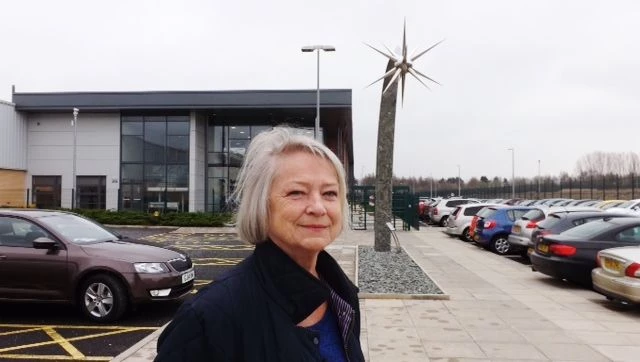
Partner Article
Legendary BBC reporter returns home for munitions factory film
The first of two programmes about the First World War, presented by legendary BBC correspondent Kate Adie and filmed in the North East is broadcast on Monday, 2 June.
Kate Adie grew up in Sunderland and visited BAE Systems Munitions new £75m plant in Washington as well as the site of its historic factory in Birtley, when she returned to the region to film two programmes about the First World War.
The Killing Factories is part of the BBC’s World War One At Home series and tells the story of the urgent construction in 1915 and 16 of munitions factories like Birtley in response to the so-called “Shell Scandal” – the public outcry at the shortage of ammunition.
With men away at war, the new factories employed thousands of women and – in the North East, wounded and exiled Belgian soldiers – to produce the millions of artillery shells needed for the front.
The programme focuses on an explosion at a munitions factory near Nottingham which killed 140 people and - using present day military expertise - asks whether it was an accident or sabotage as was suspected at the time.
Kate filmed at BAE Systems Washington to demonstrate how the safety and working conditions of modern munitions factories are unrecognisable from those built in 1916. “It’s just impossible to consider it’s the same sort of process. You could eat your dinner off the floor here. It’s fantastically ordered. It’s not particularly noisy and there are shiny machines picking up all the heavy stuff” she said.
The second programme, to be broadcast later in the summer, looks in depth at the role of women in the First World War. Both programmes use material produced by Northumberland-based Newsmaker PR and Video Production Ltd who were commissioned by BAE Systems to make a film about the history of the Birtley factory, which closed in 2012. A shortened version of that film, which features an interview with Kate Adie, has been given to all schools in the Birtley area.
Kate, who is the author of a book about the role of women in The First World War, believes the deployment of women in munitions factories played a major step in changing society: “This was the first time, in 1914, that the whole of the country was – whether they liked it or not – involved in the war effort. In the North East, there were women in their thousands on Tyneside and right through County Durham who streamed towards the munitions factories. They did all kinds of jobs that they had never done before.”
BAE Systems Munitions Head of Communications Andy Mann said: “We were delighted to be able to assist the BBC and Kate Adie in the production of these programmes. The contribution that the munitions workers made – and still make – in support of our armed forces should never be overlooked.”
Andy.mann3@baesystems.com
Andrew Lambert,
Newsmaker PR and Video Production Ltd
Tel: 07515 350110
andrew@newsmakerpr.co.uk
This was posted in Bdaily's Members' News section by Andrew Lambert .
Enjoy the read? Get Bdaily delivered.
Sign up to receive our daily bulletin, sent to your inbox, for free.








 Creating a thriving North East construction sector
Creating a thriving North East construction sector
 Why investors are still backing the North East
Why investors are still backing the North East
 Time to stop risking Britain’s family businesses
Time to stop risking Britain’s family businesses
 A year of growth, collaboration and impact
A year of growth, collaboration and impact
 2000 reasons for North East business positivity
2000 reasons for North East business positivity
 How to make your growth strategy deliver in 2026
How to make your growth strategy deliver in 2026
 Powering a new wave of regional screen indies
Powering a new wave of regional screen indies
 A new year and a new outlook for property scene
A new year and a new outlook for property scene
 Zero per cent - but maximum brand exposure
Zero per cent - but maximum brand exposure
 We don’t talk about money stress enough
We don’t talk about money stress enough
 A year of resilience, growth and collaboration
A year of resilience, growth and collaboration
 Apprenticeships: Lower standards risk safety
Apprenticeships: Lower standards risk safety